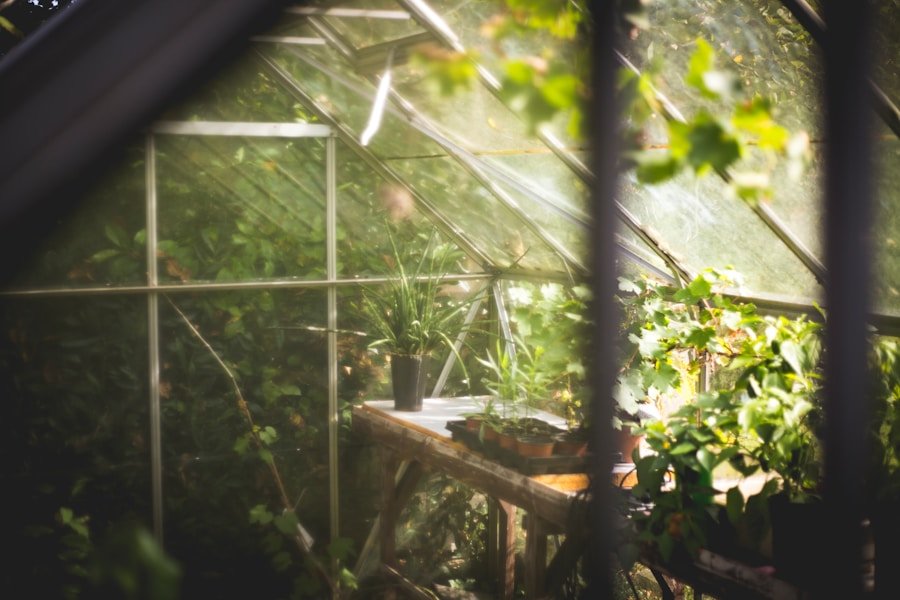Indoor gardening offers a unique opportunity to engage children with the natural world, providing a hands-on learning experience that is both educational and enjoyable for kids of all ages. Regardless of the available space, whether it be a small apartment or a large backyard, indoor gardening can be adapted to suit any environment, making it an accessible activity for urban families. By teaching children the skills necessary to care for and nurture plants, indoor gardening can help instill valuable life skills such as responsibility and patience, while fostering a deeper connection to nature.
This article will delve into the numerous educational benefits of indoor gardening for kids, including its impact on cognitive and emotional development, hands-on science learning, and the cultivation of essential life skills.
Key Takeaways
- Indoor gardening for kids provides educational benefits by teaching them about plant life cycles, ecosystems, and the importance of caring for living things.
- Cognitive benefits of indoor gardening include improved attention, problem-solving skills, and understanding of scientific concepts.
- Emotional and social benefits of indoor gardening for kids include increased empathy, responsibility, and a sense of accomplishment from nurturing plants.
- Indoor gardening serves as a hands-on science lesson, allowing kids to observe and understand the growth and development of plants.
- Starting an indoor garden with kids can teach them responsibility, patience, and create a connection to nature by caring for living plants.
The Cognitive Benefits of Indoor Gardening
Understanding the Life Cycle of Plants
By engaging in indoor gardening, children can gain a deeper understanding of the life cycle of plants and the fundamental principles of botany. Through observation and hands-on experience, they can witness the growth and development of their plants over time, fostering a greater appreciation for the natural world.
Reinforcing Classroom Concepts
This interactive experience can help reinforce concepts learned in the classroom, making them more tangible and relatable for young learners. Indoor gardening provides a unique opportunity for children to apply theoretical knowledge in a practical setting, solidifying their understanding of complex concepts.
Developing Observation Skills and Appreciation
Indoor gardening also helps improve children’s observation skills as they learn to notice subtle changes in their plants’ growth and appearance. This, in turn, can develop their ability to pay attention to detail and make connections between cause and effect. Ultimately, indoor gardening can inspire a deeper appreciation for the natural world and the intricate processes that sustain life.
The Emotional and Social Benefits of Indoor Gardening
In addition to its cognitive benefits, indoor gardening can also have a positive impact on children’s emotional and social development. Caring for plants can be a nurturing and therapeutic experience for kids, as they learn to take responsibility for the well-being of another living thing. This can help instill a sense of empathy and compassion in children as they learn to care for their plants and understand their needs.
Furthermore, indoor gardening can also provide a sense of accomplishment and pride for children as they watch their plants grow and thrive under their care. This can help boost their self-esteem and confidence, as they see the results of their hard work and dedication. Additionally, indoor gardening can also be a social activity that brings families together.
Working on a garden project as a family can provide opportunities for bonding and communication, as well as teach children the value of teamwork and cooperation.
Indoor Gardening as a Hands-On Science Lesson
| Benefit | Description |
|---|---|
| Improved academic performance | Indoor gardening can enhance children’s understanding of science, math, and nutrition, leading to better academic performance. |
| Enhanced environmental awareness | Children learn about the importance of caring for the environment and the impact of plants on the ecosystem. |
| Emotional development | Indoor gardening can help children develop patience, responsibility, and a sense of accomplishment as they care for their plants. |
| Healthy eating habits | Children are more likely to eat fruits and vegetables when they have grown them themselves, leading to healthier eating habits. |
| Stress reduction | Engaging in indoor gardening can help reduce stress and anxiety in children, promoting overall well-being. |
Indoor gardening provides an excellent opportunity for children to engage in hands-on science lessons right in their own home. By observing the growth of their plants, children can learn about the basic principles of biology and botany, including topics such as photosynthesis, plant anatomy, and the role of water and nutrients in plant growth. This practical experience can help reinforce concepts learned in the classroom and make them more tangible and relatable for young learners.
Additionally, indoor gardening can also provide opportunities for children to conduct simple experiments, such as testing different growing conditions or observing the effects of light and temperature on plant growth. This can help develop their critical thinking skills and scientific inquiry, as they learn to ask questions, make predictions, and draw conclusions based on their observations.
Teaching Responsibility and Patience through Indoor Gardening
One of the most valuable lessons that indoor gardening can teach children is the importance of responsibility and patience. Caring for plants requires consistent attention and effort, as children must water, fertilize, and monitor their plants regularly to ensure their health and growth. This can help instill a sense of responsibility in children as they learn to take care of another living thing and understand the consequences of neglect.
Additionally, indoor gardening also teaches children the value of patience as they wait for their plants to grow and develop. This can help cultivate their ability to delay gratification and understand that good things take time to come to fruition. Overall, indoor gardening can help children develop important life skills that will serve them well in all areas of their lives.
Creating a Connection to Nature through Indoor Gardening
Learning about Biodiversity and Conservation
By caring for plants, children can learn about the importance of biodiversity, conservation, and sustainable living practices. This can help foster a sense of environmental stewardship in children as they learn about the interconnectedness of all living things.
Understanding the Seasons and Ecosystem
Indoor gardening can also provide opportunities for children to learn about the seasons, weather patterns, and the role of plants in the ecosystem. This practical experience can help make abstract concepts more concrete and relevant for young learners, while also fostering a sense of wonder and curiosity about the natural world.
Fostering a Deeper Appreciation for Nature
Through indoor gardening, children can develop a deeper appreciation for the natural world and their place within it. By nurturing plants and watching them grow, children can gain a sense of responsibility and connection to the environment, setting them on a path towards a lifelong appreciation for nature.
Tips for Starting an Indoor Garden with Kids
If you’re interested in starting an indoor garden with your kids, there are a few tips to keep in mind to ensure a successful and enjoyable experience. First, consider the space you have available and choose plants that are well-suited to your environment. If you have limited space, consider starting with small potted herbs or succulents that are easy to care for and don’t require a lot of room to grow.
Additionally, involve your children in the planning process by letting them choose which plants they would like to grow. This can help foster a sense of ownership and enthusiasm for the project. Once you have chosen your plants, set up a designated area for your indoor garden that is easily accessible to your children.
Provide them with their own gardening tools and supplies so they can take an active role in caring for their plants. Finally, make sure to set aside time each day to tend to your indoor garden together as a family. This can provide opportunities for bonding and communication while also teaching children the value of consistency and routine in caring for their plants.
In conclusion, indoor gardening is a wonderful way to introduce children to the world of plants and nature while providing numerous educational benefits. From cognitive development and hands-on science lessons to emotional and social growth, indoor gardening can help children develop important skills and values that will serve them well throughout their lives. By starting an indoor garden with your kids, you can provide them with a meaningful learning experience that fosters a connection to nature and instills a sense of responsibility and patience.
So why not roll up your sleeves, get your hands dirty, and start planting the seeds of learning with your kids today?
FAQs
What are the educational benefits of indoor gardening for kids?
Indoor gardening for kids provides numerous educational benefits, including teaching them about plant life cycles, photosynthesis, and the importance of caring for living things. It also helps develop their fine motor skills, patience, and responsibility.
How does indoor gardening help with children’s cognitive development?
Indoor gardening can enhance children’s cognitive development by providing hands-on learning experiences that stimulate their curiosity, problem-solving skills, and understanding of scientific concepts such as biology and ecology.
What are the social and emotional benefits of indoor gardening for kids?
Engaging in indoor gardening can help children develop a sense of responsibility, empathy, and connection to nature. It also provides opportunities for them to work collaboratively with others, share their experiences, and develop a sense of accomplishment and pride in their gardening efforts.
What types of indoor plants are suitable for kids to grow?
Some suitable indoor plants for kids to grow include herbs like basil, mint, and chives, as well as easy-to-care-for plants like succulents, spider plants, and pothos. These plants are relatively low-maintenance and can thrive in indoor environments.
How can parents and educators incorporate indoor gardening into children’s learning experiences?
Parents and educators can incorporate indoor gardening into children’s learning experiences by providing them with age-appropriate gardening tools, teaching them about plant care and maintenance, and integrating gardening activities into their curriculum or daily routines. They can also involve children in choosing and caring for the plants, and encourage them to observe and document the growth process.





